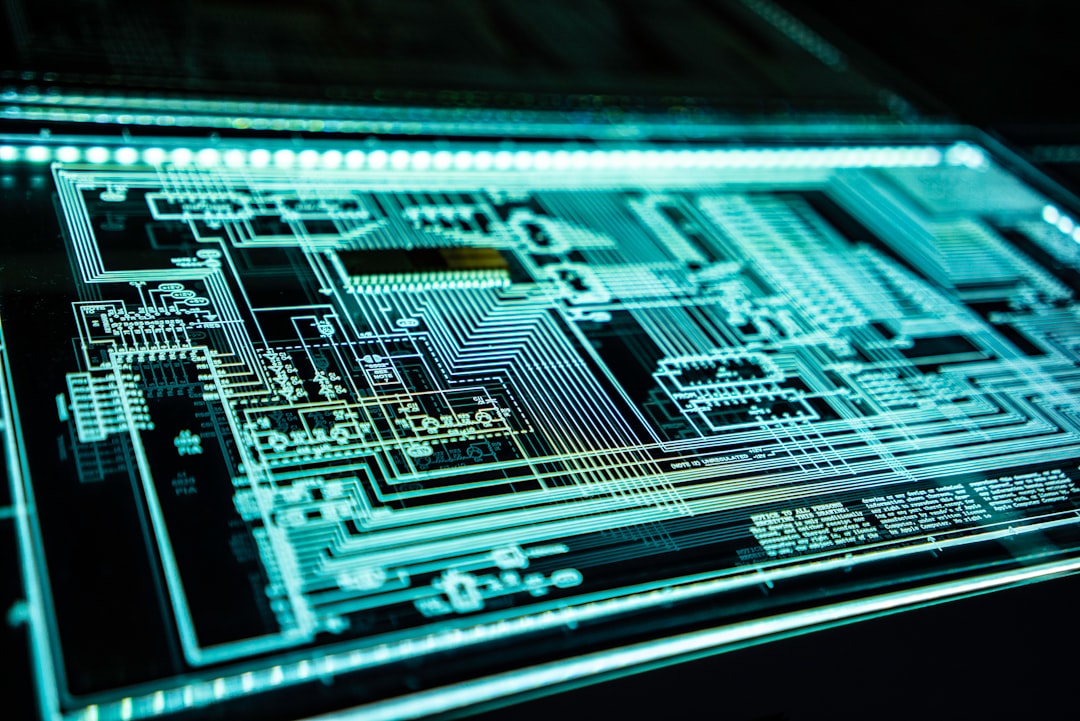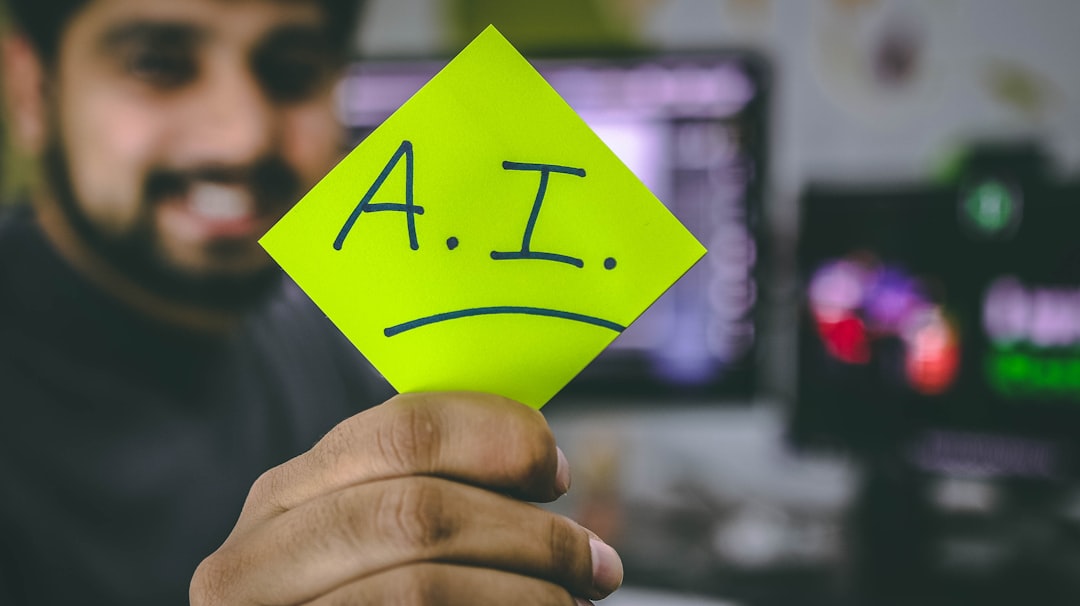Unveiling the Biblical Warnings
The exponential growth of AI has prompted profound discussions and debates within Christian perspectives regarding its potential connection to biblical prophecies and warnings. Many individuals have expressed concerns about the impact of AI technology on society, raising questions about its association with the concept of the Anti-Christ and its role in shaping the future of technology. For example, the development of advanced AI systems that have the potential to exert significant control over various aspects of human life has led to contemplation about its alignment with biblical prophecies related to the rise of a powerful and deceptive figure in the end times.
These discussions explore the hidden signals and signs that are believed to be connected to the true purpose of AI development, as perceived from a Christian perspective. For instance, the rapid advancement of AI and its integration into various facets of daily life has prompted some to reflect on biblical warnings about the potential misuse of knowledge and technology for deceptive and manipulative purposes. The analysis of biblical perspectives on AI and its potential implications on society and faith is a topic of interest, as it offers insights into how technological advancements may intersect with spiritual and ethical considerations, shaping the beliefs and actions of individuals within Christian communities. These perspectives shed light on the need for critical reflection and discernment in navigating the complexities of AI development within the framework of biblical teachings and warnings.
In addition to these concerns, it is essential to delve into the ethical dimensions of AI development and its potential consequences, particularly from a Christian viewpoint, to foster a more comprehensive understanding of the risks and responsibilities associated with the advancement of AI technology. Moreover, these discussions can shed light on the need for a conscientious approach to AI development that aligns with ethical and moral principles, as highlighted in certain religious and ethical frameworks.
Exposing Big Tech’s Deception
The concealment of the true purpose and potential hazards of AI development by big tech companies has sparked widespread concern and scrutiny. The lack of transparency has resulted in a significant knowledge gap among the general public, raising ethical dilemmas and prompting questions about the overlooked warnings in AI advancement, especially from a Christian perspective. For instance, the exponential growth of AI and its potential impact on society has been linked to biblical prophecies and warnings, including the concept of the Anti-Christ, creating a sense of unease and apprehension within certain religious circles.
One example that illustrates this deception is the portrayal of AI as a purely beneficial and progressive force while downplaying its potential negative repercussions. This one-sided presentation has led to the negligence of ethical considerations and the dismissal of critical voices, hindering a comprehensive understanding of the implications of AI development. Additionally, certain sources have suggested a connection between AI, deceit, and a sinister plan, aligning with specific interpretations that highlight the ethical and moral implications of AI’s rapid advancement.
The ethical implications of this deception cannot be overstated, especially when considering the potential societal and moral impact of Artificial Intelligence. It is essential to delve deeper into the ethical dimensions of AI development and its potential consequences, particularly from a Christian viewpoint, to foster a more comprehensive understanding of the risks and responsibilities associated with the advancement of AI technology. Moreover, these discussions can shed light on the need for a conscientious approach to AI development that aligns with ethical and moral principles, as highlighted in certain religious and ethical frameworks.
AI’s Impact on Christian Society
The exponential growth of AI has raised significant concerns within Christian society, particularly regarding the potential dark realities and dangers associated with this technology. From a Christian perspective, there is a growing apprehension about the loss of control in AI creation and the ethical implications of its widespread development. For instance, the concept of creating autonomous AI systems that could operate beyond human oversight raises theological and ethical questions about the boundaries of human dominion and responsibility over creation, echoing biblical principles of stewardship and accountability.
Furthermore, Christian beliefs and biblical teachings have been analyzed to understand the specific warnings and signals related to the true purpose of AI development. Some scholars and theologians have delved into biblical prophecies and scriptures to discern potential connections between the rapid advancement of AI and the prophesied end times. For example, there is a growing discourse around the potential parallels between AI’s unbridled growth and the biblical concept of the Anti-Christ, which is believed to embody deceit and manipulation in the final days. These interpretations serve as a cautionary reminder for Christian society to critically evaluate the ethical and moral implications of AI’s trajectory.
In light of these concerns, certain Christian perspectives emphasize the importance of maintaining a grounded faith and reason to avoid succumbing to the potential temptations and dangers of AI. This involves fostering a deep understanding of the ethical considerations surrounding AI development and usage and actively engaging in conversations that integrate faith-based principles with technological advancements. It is seen as crucial for individuals and communities to navigate the complexities of AI while upholding moral integrity and ethical discernment, drawing from the rich ethical traditions and teachings within the Christian faith.
The Role of AI in Deepfakes
The exponential growth of AI technology has facilitated the creation of deepfakes, which are synthetic media where a person in an existing image or video is replaced with someone else’s likeness using AI. These deepfakes have both positive and negative implications for society. For instance, they have been used in the film industry to rejuvenate actors and actresses, allowing them to appear in roles that they may have outgrown due to age or physical limitations. Additionally, deepfakes have given voice to marginalized individuals by allowing them to express themselves through the use of technology, thus promoting inclusivity and representation in media.
However, the negative applications of deepfakes are a cause for concern. These manipulated videos and audio recordings have been used to deceive the public and manipulate public figures, leading to potential emotional distress and reputational damage. As a result, the ethical considerations and societal impact of deepfakes have raised significant alarm within various communities. Efforts to combat malicious deepfakes have included the implementation of legal measures, the development of advanced detection methods, and the enforcement of content moderation on social media platforms. These measures aim to mitigate the harmful effects of deepfakes and protect individuals and public figures from potential exploitation and misinformation.
Deepfakes have also been utilized to create hyper-realistic videos and audio recordings that can be used for both benign and malicious purposes. This technology erodes credibility, manipulates politics, has economic consequences, and poses a threat to national security. However, AI is not only the problem but also the solution, as it is used to create deepfakes but also to detect them. Strategies to combat deep fake news include education and media literacy, advanced detection tools, legislation and regulation, media verification, and public awareness campaigns. It is essential to remain vigilant, educate ourselves and others, and invest in the development of AI-powered tools to detect and combat deep fake fake news.
Combatting Deep Fake Fake News
The battle against deep fake fake news involves a multi-faceted approach that encompasses various strategies and tools to mitigate its harmful impact on society. One such strategy is the promotion of education and media literacy, which aims to empower individuals to critically evaluate the information they encounter, especially in digital and online platforms. By equipping the public with the skills to discern between authentic and manipulated content, it becomes possible to reduce the influence of deep fake fake news.
Moreover, the development of advanced detection tools is pivotal in the fight against deep fake fake news. These tools leverage cutting-edge AI technology to identify and flag deceptive content, thereby enabling platforms and authorities to take necessary action to prevent the proliferation of misleading information. Additionally, legislation and regulation play a crucial role in establishing legal frameworks that govern the creation and dissemination of deep fake news. By implementing laws and regulations that hold individuals and entities accountable for producing or spreading deceptive content, there is a potential deterrent effect that contributes to curbing the circulation of such damaging material.
Furthermore, media verification processes are being refined to authenticate the validity of digital content, particularly in instances where there is a risk of manipulation or fabrication. This verification involves employing forensic techniques to ascertain the veracity of images, videos, and audio recordings to combat the proliferation of deep fake news. Lastly, public awareness campaigns are essential to educate and inform the populace about the existence and potential harms of deep fake news, encouraging them to critically evaluate the information they encounter and to be cautious consumers of digital content. These collective efforts serve as a proactive defence against the insidious spread of manipulated media and the associated risks it poses to society.
The Trillion-Dollar Industry of AI
The exponential growth of AI has not only revolutionized technology but has also given rise to a trillion-dollar industry that has far-reaching economic implications. The financial impact of AI can be seen in various sectors, including healthcare, finance, manufacturing, and entertainment. For example, in the healthcare industry, AI-powered diagnostic tools and predictive analytics have led to improved patient outcomes and operational efficiencies, resulting in substantial cost savings for healthcare providers and organizations. This illustrates how AI’s economic impact extends beyond the tech industry, influencing diverse sectors of the global economy.
Moreover, the pursuit of unparalleled wealth and power in the tech industry has been a driving force behind the rapid expansion of AI. Big tech companies are heavily investing in AI research and development to gain a competitive edge and dominate the market. For instance, the race to develop advanced AI algorithms and machine learning models has led to fierce competition among tech giants like Google, Amazon, and Microsoft, each vying to establish their dominance in the AI space. This fierce competition has not only fueled the economic growth of the AI industry but has also raised concerns about monopolistic practices and the concentration of power in the hands of a few tech conglomerates.
The economic allure of AI has also prompted extensive collaborations between big tech companies, startups, and research institutions, leading to a massive influx of investment in AI-driven ventures. This has created a dynamic ecosystem where innovative AI applications and solutions are constantly being developed and commercialized, contributing to the trillion-dollar valuation of the AI industry. The economic implications of AI’s rapid growth underscore the need for ethical considerations and regulatory frameworks to ensure that the pursuit of financial gain does not overshadow the potential societal impact and ethical concerns associated with AI development and deployment.
In addition to the economic impact, the exponential growth of the AI industry has also raised ethical considerations regarding the responsible and equitable use of AI technologies. As AI continues to permeate various sectors and aspects of human life, questions have emerged about the ethical implications of AI-driven decision-making, potential biases in AI algorithms, and the societal impact of automation and job displacement. These concerns have prompted discussions and initiatives aimed at establishing ethical guidelines and frameworks for the development and deployment of AI technologies, ensuring that they align with moral principles and contribute to the betterment of society.
Conclusion: Understanding AI’s True Purpose
The synthesis of biblical insights and technological advancements has brought to the forefront the critical need for ethical development and usage of AI. It has underscored the significance of fostering a deep understanding of the true purpose of Artificial Intelligence, particularly in light of the warnings and signals echoed in certain biblical perspectives. This emphasis on ethical considerations and aligning technological progress with moral principles serves as a guiding light for navigating the complex landscape of AI and its profound implications on society and faith. The intersection of biblical warnings and the exponential growth of AI has sparked profound concerns within Christian communities, prompting a reevaluation of the true purpose of AI. As technological advancements continue to unfold at an unprecedented pace, many individuals are turning to biblical teachings to discern the potential implications of AI on society and faith. The Book of Revelation, for instance, has been a focal point for interpreting the concept of the Anti-Christ about the rapid evolution of technology, igniting discussions about the alignment of certain technological developments with biblical prophecies.
Moreover, the increasing reliance on AI and its potential to influence various spheres of life has led to the exploration of hidden signals and signs that some believe are connected to the true purpose of AI development from a Christian perspective. For example, the emergence of AI chat GPT tools, as highlighted in certain sources, has raised concerns about the convergence of deception, AI, and the satanic plan, prompting individuals to remain grounded in faith and reason to resist succumbing to the potential temptations of AI.
In essence, the synthesis of biblical insights and technological advancements has brought to the forefront the critical need for ethical development and usage of AI. It has underscored the significance of fostering a deep understanding of the true purpose of Artificial Intelligence, particularly in light of the warnings and signals echoed in certain biblical perspectives. This emphasis on ethical considerations and aligning technological progress with moral principles serves as a guiding light for navigating the complex landscape of AI and its profound implications on society and faith.
This article was originally published on Clickbank Reviews












